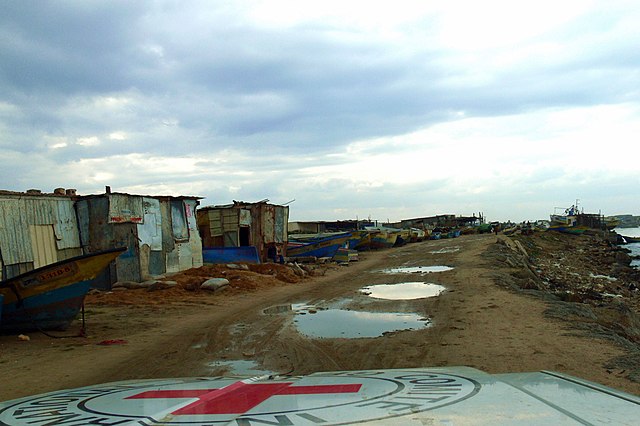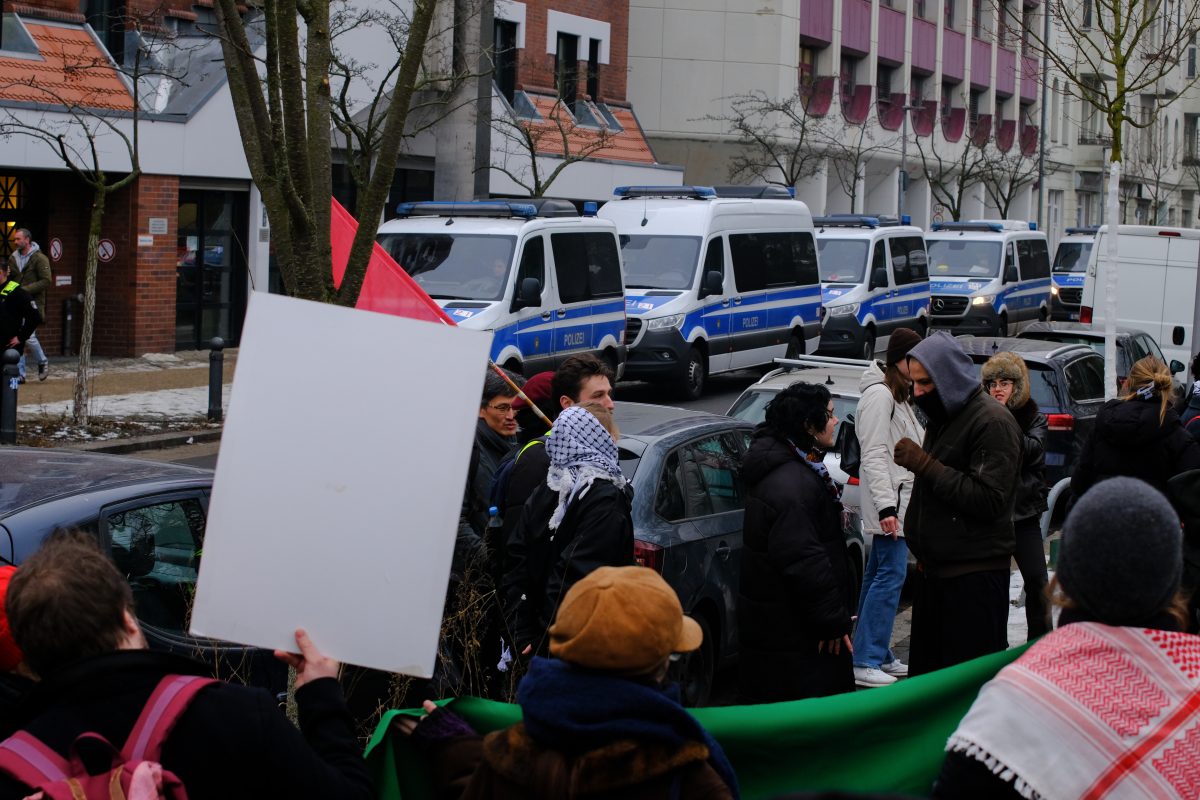It is now November 2024, a year since the genocide in Palestine began. Like many others, my life has been profoundly transformed by the events of the past year. I have felt extreme grief, rage, sadness, anxiety, and despair. For a year now, I’ve been disoriented, dysregulated, unwell, and struggling to comprehend how this could be happening. Since the genocide began I’ve been living in Berlin, a city that has also faced brutal repression and violence from the German state for solidarity with Palestine.
In the first six months, I attended many protests with my partner and friends. We spoke constantly about what was happening, reading, listening, and engaging in whatever way we could. But like so many others, I started to burn out. The constant repression, apathy, and overwhelming grief and rage left me exhausted. My partner and I began to talk about how we couldn’t sustain this momentum any more. I started dissociating, numbing myself from the constant onslaught of horrifying images and news, both from Palestine and from what was happening here. I felt closed off and distant, emotionally drained, and in desperate need of support.
In the midst of this, I found refuge in spaces of care. I always understood that such spaces are vital for our movements, but I didn’t truly feel this until I experienced it first-hand. One space that has been especially healing for me is the Bodywork Community Salon, a weekly, free, queer-run bodywork clinic in Berlin offering support to Palestinians, activists, and allies affected by the genocide. I’ve visited this space numerous times over the past few months, and it has become a sanctuary. The offerings vary each week—massages, cranial work, somatic trauma healing, NADA acupuncture, and an apothecary stocked with local herbal remedies. All of it is free.
Each time I enter the salon, I am greeted with warmth and genuine care. The practitioners meet me where I am, offering bodywork and time to rest. Afterward, I often visit the apothecary, where I can speak openly about my needs, and always find a remedy. The experience of receiving care without the exchange of money, as a means of sustaining the struggle for liberation is something I have always longed for. In a world where urgency often overrides our ability to slow down, this space has encouraged me to rest and heal—something so vital in these times of crisis.
The care I’ve received here has not only nurtured my body and heart but also reignited my hope. The practitioners are offering their time and energy freely, which has inspired me to think about new ways to care for others. It has expanded my capacity for giving, which is essential to sustaining a movement. In a time of profound grief, the care we offer one another becomes both a refuge and a revolutionary act.
From the beginning of this year, I’ve witnessed an outpouring of community-driven spaces for somatic expression, grief work, free therapy, herbal medicine, peer support, and collective processing. People have been offering care freely, knowing it is necessary to sustain our collective struggle. We recognize that Palestine’s liberation is inextricably linked to the liberation of all oppressed people. Imperialism, neoliberal capitalism, the expansion of prisons, and the militarization of police—these systems are interconnected, and the fight for Palestine is the fight for us all. This understanding has deepened our commitment to caring for one another in tangible, meaningful ways.
Amidst the catastrophic moment of societal collapse we find ourselves in, I see people creating communities of care outside of the dominant systems. Abolition, as a philosophy and praxis, teaches us the value of radical hope and imagination. In We Do This ‘Til We Free Us: Abolitionist Organizing and Transforming Justice, Miriame Kaba writes, “I don’t believe in self-care, I believe in collective care, collectivizing our care, and thinking more about how we can help each other.” Abolition is not just about dismantling harmful systems—it is about building the alternatives that will replace them. Over the past year, I have witnessed these alternatives taking shape, embodied in the care that has become my lifeline.
Community care is vital to any movement because it strengthens our capacity to care for one another, creating a cycle of support. Care reproduces more care. It also allows us to dream of a new world—one in which care is freely given and received. I am reminded that when we prioritize community care as a practice, we are honoring the lineages of care that have come before us. I think of the People’s Free Medical Clinics started in my hometown, Oakland, by the Black Panthers—a revolutionary act of care during the Black liberation movement. These clinics were designed to provide free health services in order to model an alternative to the existing, inequitable healthcare system. I think of mad, disabled, crip, and psychiatric survivor communities who always have had to fight for survival, creating their own networks of care outside of ableist and oppressive systems. We recently witnessed a resurgence of mutual aid initiatives during the ongoing COVID-19 pandemic, honoring a growing recognition of our interconnectedness and long held lineages of care.
Palestine will be free. Our liberations are interconnected. When we understand that this moment is about freeing us all, we can ignite what is truly important. It is our duty to sustain this movement for the liberation of Palestine. When we create spaces of care—no matter how small—this becomes an act of resistance and a reach toward the possibility of a new world. Despite the ongoing horrors we witness everyday, I will continue fighting for liberation, building new communities of care, and holding onto the belief that the care we dream of is not only possible, but essential to the world we are working to create.




